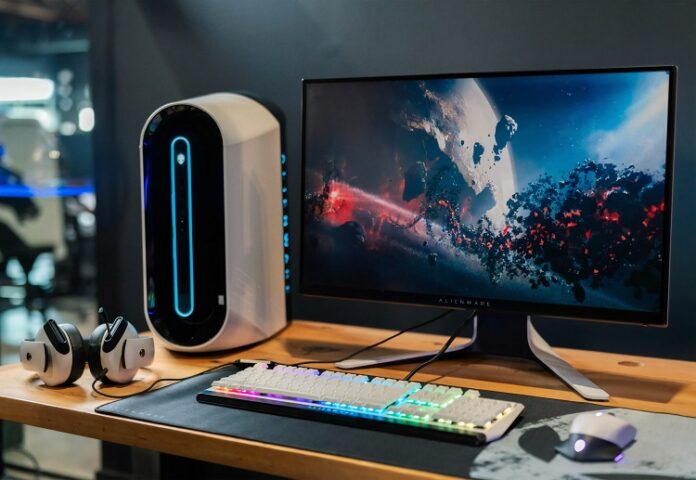According to a recent survey, the amount of households in the UK that own a PC is around 90%. This is a huge number, considering only 38% of UK households owned a PC twenty-two years ago, in 2000-2001.
When it comes to how those computers are used, it seems to vary. In 2023, many people in the UK and around the world will use their PCs as a way to work from home.
For instance, in the US, 12% of the workforce is now working remotely, and a further 28% identify as hybrid workers – individuals who work part-time in the office and part-time from their own PC.
Key players across the length and breadth of the tech industry have – and continue to – drive our expectations higher still. Microsoft and Apple, of course, drive our expectations when it comes to the hardware itself. Ubisoft and LeoVegas online and other major developers drive our expectations higher when it comes to gaming online and offline – for instance, the online gaming market is expected to reach $384.9 by the end of 2023, with the number of users expected to reach 3.10 billion by 2027. A staggering range of B2C and B2B ‘big names’ (from Netflix to Salesforce) are driving our expectations higher when it comes to SaaS.
The PC In 2023
But no matter what you use your PC for, the point is that they have been one of the most positive effects of technology, becoming an essential part of the modern household. It is interesting, therefore, that there are so few people who actually know how they work.
Think about it, how many people really know what powers their PC? For most people, the PC works by pressing the “on” button. That’s it. There’s no more to think about.
But if the PC is such an important part of modern society – and will likely be owned in every household sometime in the next decade – surely it’s important that we know how they work?
Well, we think it is! And that’s why we’ve concocted a little run-through of how your PC gains its power and the component that is so important in running your everyday life:
The Power Supply
When it comes to your PC, there are a number of components that ensure it runs smoothly and effectively, but in terms of the actual operation of the computer, it wouldn’t go very far without the power supply.
Without this, your PC would essentially be a box with a screen. You wouldn’t be able to play any games on it any time soon!
To explain a little bit more, the PSU – power supply unit – converts the power of the AC line – alternating current – into a lower voltage, known as the direct current. The typical voltages, in this case, are 3.3 volts, 5 volts or 12 volts.
When it comes to typical digital circuits, the 3.3 and 5 volts are the most common, while the 12 volts is utilised to run disk drives and fans.
Recognising The Power Component
For those interested in how to recognise and find the power supply, it is the metal box which is found in the corner of the PC case. . It should be noted, however, that laptops and mini-PCs do not have a power supply integrated into the charging cables and instead keep it separate from the main computer assembly.
The Improvements In 2023
Over the years, the power supply of PCs has improved along with the technology that they power. In 2023, motherboard improvements allow users to monitor the RPM – revolutions-per-minute – of the fan, which can then be controlled to run according to the speed that is needed.
Some PCs also include more than one power supply, with the backup taking over if there is any problem with the primary supply.
Once again, as the digital world improves, it is likely that the components of PCs will improve along with it, with more updates and improvements that will ensure longer PC life and lower the risk of faults.
But when it comes to the mother of all components, the power supply will always be the one component that gives life to all the others, ensuring that your PC is more than just a box with a screen!





